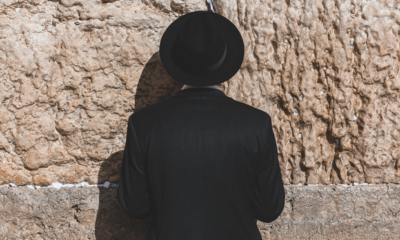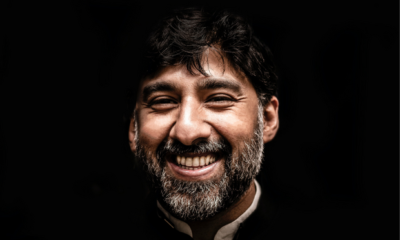Life
The Happiness Model That’ll Change Any Entrepreneurs Life
People often think that they will be happy at a later stage if they work hard today. However, there is no guarantee of happiness at a later stage.

Due to the rapid growth in technology, people are often in the rat race to compete with others little realizing that they are losing so much or so little. People often search for stones by leaving gems at home.
People often think that they will be happy at a later stage if they work hard today. However, there is no guarantee of happiness at a later stage.
In this context, I would like to discuss Ben-Shahar’s Happiness Model which is thought-provoking for busy people to take a look at and find meaning in their lives.
Dr. Tal Ben-Shahar is the author of several books and a specialist in “Positive Psychology.” He is the author of various books such as The Pursuit of Perfect: How to Stop Chasing Perfection and Start Living a Richer, Happier Life and Happier: Learn the Secrets to Daily Joy and Lasting Fulfillment.
He has designed a Happiness Model which is also known as “The Hamburger Model”. It contains four quadrants representing Nihilism, Hedonism, Rat Race, and Happiness.
Here is the information taken from his book ‘Happier’ to bring awareness about this model for the benefit of readers.
Ben-Shahar’s Happiness Model
Nihilism: Nihilism falls in the bottom left-hand quadrant of the Happiness Model. Nihilists are people who have given up hope of finding meaning in life. They don’t enjoy any present happiness, nor do they have any sense of purpose or hope for the future. As a result, they’re “resigned to their fate.”
Hedonism: Hedonism falls in the lower right-hand quadrant of the model. Hedonists focus on present happiness only, and give little thought to future consequences. They may think that “working hard” is painful and tedious, and may avoid this. As a result, hedonists feel unchallenged and are often unfulfilled.
Rat Race: The Rat Race falls in the upper left-hand quadrant of the model. In the Rat Race, we detrimentally put off present happiness in the hope of some future benefit. This archetype is likely the most familiar to many of us. Here, people constantly pursue goals that they think will make them happy. When those goals are achieved, however, a new goal almost immediately takes its place. While Rat Racers may experience brief flashes of satisfaction when they achieve goals, any thought of present happiness is then quickly pushed to the side.
Happiness: The Happiness archetype falls in the upper right quadrant of the model. This archetype reflects a good balance between present happiness and future benefits.
Precisely, the Happiness Model defines four happiness archetypes as follows:
- Nihilism – Nihilists have lost the joy in life. They derive no present pleasure in their work or life and expect no future benefits or rewards. They’ve “given up.”
- Hedonism – Hedonists live for the moment. They pursue pleasure and an easy life and give little or no thought to future consequences and plans.
- Rat Racing – The Rat Race archetype often sacrifices current pleasures and benefits in anticipation of some future reward.
- Happiness – True happiness is achieved when there is a perfect balance between present pleasure and future benefits.
“Happiness grows less from the passive experience of desirable circumstances than from involvement in valued activities and progress toward one’s goals.” — Tal Ben-Shahar
Current Global Scenario
It is rightly said that a young person looks at the future; the middle-aged person looks at the present while the old-aged person looks at the past. However, in the cut-throat competitive world young, middle-aged, and old are running behind something for which they don’t have any clarity.
The present position is such that parents don’t have time to spend with their children. As a result, children find emotional gaps and search elsewhere for the same. Sometimes the crimes shoot up among the children and teenagers as parents don’t find time to guide and groom them.
Old people are uncared by children as the latter are busy with their survival and success.
We are living in a competitive world where people often intend to outsmart others without realizing any meaning in life. God gave us life.
We must learn to make use of the most by striking a balance between pressure and pleasure, between rapidity and slowness. Otherwise, there is no meaning to life.
Happiness is a state of mind. It comes in any way such as through wealth, knowledge, power, prestige, or love. However, it depends on the priority of the person.
People often think that happiness is an end but the fact is that happiness is a means. People struggle and sacrifice throughout their life journey to think about the destination of happiness.
True happiness lies in the journey, not in the destination.
It is essential to strike the balance between today and tomorrow. Several books have come up learning to live in the present rather than getting bogged down about the past and over anxious about the future.
Hence, let us learn to live in the present rather than being worried about the past that cannot be changed and concerned about the future that can not be predicted.
Learn to strike a balance between the past, present, and future and also between the pressure and pleasure to find meaning in your life.
Life
Imposter Syndrome Is Rooted in Your Past But Here’s How You Can Rewire It
Imposter syndrome is most prevalent in highly successful women

Imposter syndrome is “the persistent inability to believe that one’s success is deserved or has been legitimately achieved as a result of one’s own efforts or skills.” (more…)
Life
The Surprising Mental Health Tool You Probably Haven’t Tried
Through journaling, I arrived at a more balanced perspective, it reinstated my sense of gratitude and led me to accept my disability

In two particularly difficult times in my adult life, my journaling practice is helping me heal emotionally. It has been a vital tool for helping me see the bigger picture and land in a place of gratitude. (more…)
Life
How to Stop Comparing Yourself to Others and Find True Happiness
Comparison is the thief of joy; it robs us of our happiness, self-esteem, and peace of mind

In today’s hyperconnected world, it’s easier than ever to fall into the trap of comparing ourselves to others. Social media platforms like Instagram, Facebook, and LinkedIn constantly bombard us with curated highlights of other people’s lives, making it seem like everyone else is happier, more successful, and more fulfilled than we are. (more…)
Life
Harness the ‘Battery Effect’ to Transform Life’s Tensions into Your Greatest Strength
Recharge your life batteries by shifting your mindset today

I believe our life capacity is determined by the skillsets we develop on this spinning rock we call Earth. By “life capacity,” I mean our ability to embrace and sustain joy. (more…)
-

 Success Advice4 weeks ago
Success Advice4 weeks agoThe One Mindset Shift That Made Me Irreplaceable At Work
-

 Did You Know3 weeks ago
Did You Know3 weeks ago7 Surprising Life Lessons Video Games Taught Me That School Never Did
-

 Success Advice3 weeks ago
Success Advice3 weeks agoHow Playing by the Rules Became the Smartest Business Strategy
-

 Success Advice3 weeks ago
Success Advice3 weeks agoHow to Build Trust, Kill Micromanagement, and Lead a Team That Thrives
-

 Scale Your Business3 weeks ago
Scale Your Business3 weeks agoHow to Build a Workplace People Actually Want to Show Up To
-

 Success Advice2 weeks ago
Success Advice2 weeks agoSuccess Isn’t Sexy: 5 Daily Habits That Actually Work
-

 Scale Your Business2 weeks ago
Scale Your Business2 weeks agoHow Smart Entrepreneurs Cut Financial Chaos in Half with One Simple Switch
-

 Success Advice2 weeks ago
Success Advice2 weeks agoBreaking the Bias: How Females Can Thrive In The Workplace in 2025





























